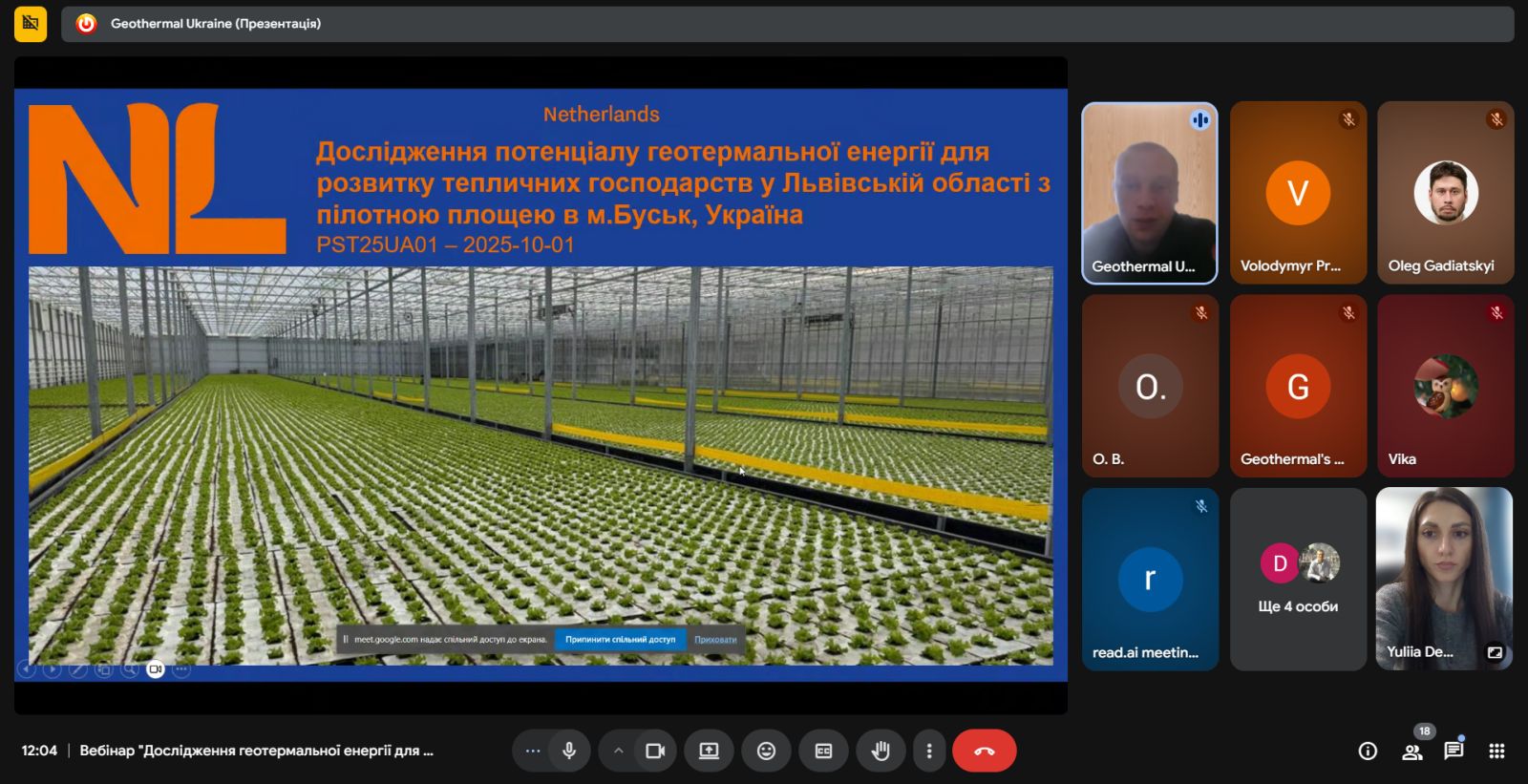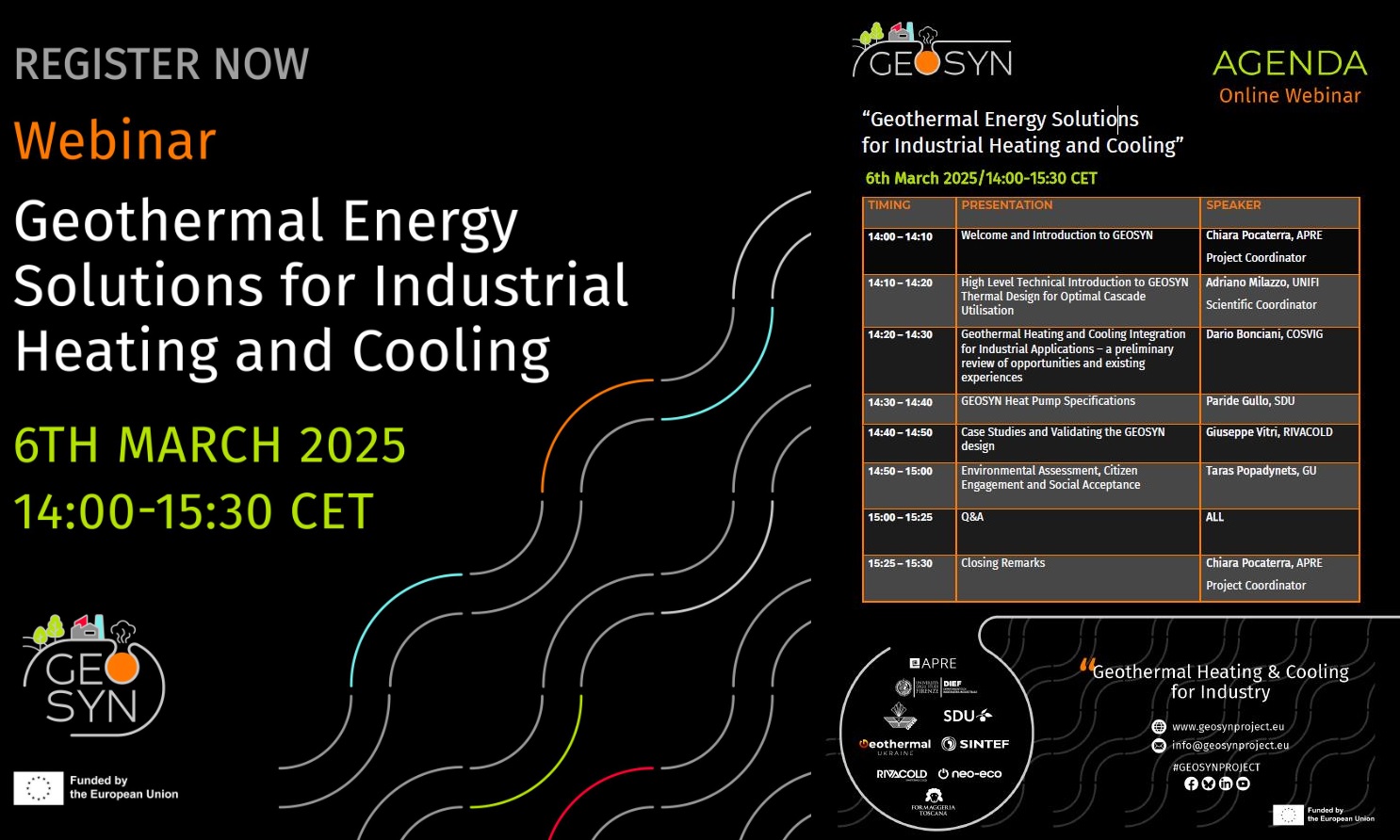On October 16, 2025, the NGO Geothermal Ukraine held a webinar dedicated to the outcomes of the Ukrainian-Dutch project "Study on Geothermal Energy For Greenhouse Development in Busk, Lviv, Ukraine".
🔹 Project partners: TNO, DTESS, Geothermal Ukraine, FoodVentures
🔹 Duration: March – October 2025
🔹 Participants: 18 representatives from government, business, and academic institutions
The project showcased the potential of geothermal energy as a sustainable heat source for greenhouse complexes, using a pilot site near the city of Busk, operated by FoodVentures, as an example.
Geothermal heat can reduce dependence on fossil fuels, lower CO₂ emissions, and enhance Ukraine’s energy resilience.
As part of the project, experts explored the direct-use potential of geothermal energy and conducted an analysis of the political, economic, regulatory, and market preconditions for the sector’s development.
Two productive geological horizons were examined:
🔸 Neogene formation (ND-14) — identified as the most promising, with temperatures exceeding 70°C in the southwestern part of the region (Yavoriv and Sambir districts) and a potential capacity of up to 30 MW. The probability of success is considered moderate (~20%), highlighting the need for further exploration.
🔸 Devonian formation (D) — found to have limited potential. Therefore, for the greenhouse near Busk, the optimal solution was determined to be a hybrid system combining geothermal heat pumps with other renewable energy sources.
Challenges remain, including geological uncertainty, data scarcity, high upfront investment, and low market awareness.
Nevertheless, hybrid geothermal systems represent a real pathway to a low-carbon and resilient agricultural sector in Ukraine.
The project was implemented with the support of the Embassy of the Kingdom of the Netherlands in Ukraine and funded by RVO – the Netherlands Enterprise Agency.



.jpg)
















































